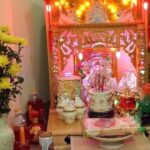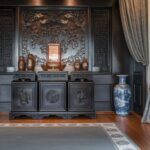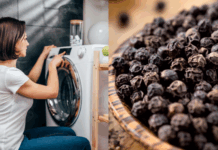Notes on Offering Flowers to Ancestral Altars on the 15th Day of the Seventh Lunar Month
On special occasions such as the 15th day of the seventh lunar month, the first day of the lunar new year, death anniversaries, and other holidays, a vase of fresh, beautiful flowers is essential on ancestral altars. Traditionally, fresh flowers symbolize purity and are offered to Buddha, Saints, and Ancestors as a token of respect and to bring forth positive energy.
The presence of fresh flowers not only beautifies the altar but also brings a vibrant and pleasant atmosphere with their colors and fragrance. The choice of flowers often depends on the season, local customs, and the characteristics of each family. However, not all types of flowers are suitable for offering.
According to the Dà Lá Ni Tập Kinh, volume 6, certain types of flowers are not suitable for use in worship. Flowers with an unpleasant odor, thorny flowers, or those with a bitter taste should be avoided for offerings.
The Venerable Thích Thanh Phương from Sủi Pagoda in Bắc Ninh also emphasized that the ancestral altar is a sacred place, and therefore, offering flowers should be done meticulously. The vase should not be too large as to overshadow other offerings, nor too small, which would create an imbalance in the space.
Here are some helpful guidelines for choosing flowers, based on the experience of many Buddhist followers:
- For larger altars, opt for vases that are 30 to 40 cm in height to accommodate taller flowers such as lilies, lilies-of-the-valley, or lilies.
- For smaller altars, vases ranging from 15 to 25 cm in height are suitable for flowers such as roses or chrysanthemums.
- Carefully select the flowers, choosing only those that are just about to bloom. Avoid flowers that are too large or have damaged petals, leaves, or signs of withering.
- An important note is to use only one type of flower per vase. Mixing too many varieties or colors of flowers in one vase may make the altar look less elegant and dignified.
- If traditional Buddhist colors of fresh red or yellow are unavailable, opt for flowers with lighter shades, ensuring they still appear vibrant and bright.
- Absolutely avoid offering artificial flowers during important rituals such as the 15th day of the seventh lunar month or other occasions. Artificial flowers cannot bring the necessary vibrancy and life to the altar.
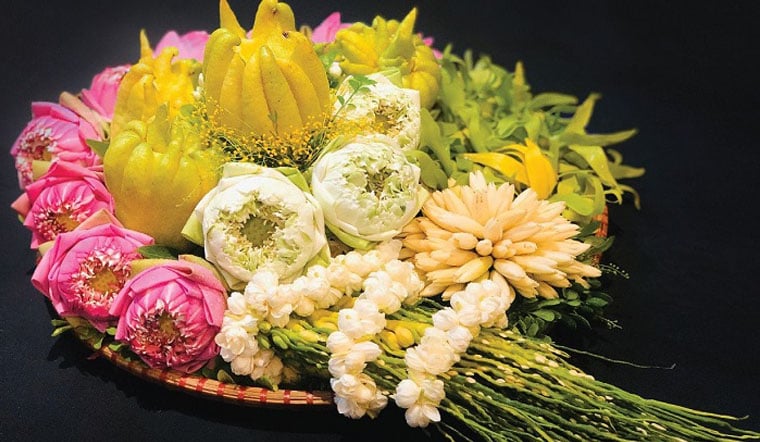
Fresh flowers add beauty and a pleasant fragrance to the altar space.
Avoiding Bad Luck in the Seventh Lunar Month: Flowers to Avoid for Offerings
According to feng shui beliefs, choosing the right flowers for offerings during the 15th day of the seventh lunar month is crucial to ward off bad luck. The following are types of flowers that homeowners should avoid when preparing for this important day:
Artificial Flowers
While many families opt for artificial flowers to save time and money, this is not encouraged. The ancestral altar is a sacred space that reflects the reverence of descendants towards Buddha, Saints, and Ancestors. Offering artificial flowers is considered disrespectful and may affect the sacred atmosphere. Instead, families should choose fresh flowers with vibrant colors and pleasant fragrances for holidays or death anniversaries.
Orchid Flowers
Although orchids are often associated with beauty and refinement, and are known for their vibrant colors and long blooming period, in feng shui, the word “phong” in Vietnamese (“lan” in “hoa phong lan”) can evoke a sense of uncontrollability, such as promiscuity or extravagance. Therefore, many people choose to avoid offering this flower to maintain the purity and solemnity of the altar space.
Plumeria Flowers (Frangipani)
Plumeria, with its pure white color and delicate fragrance, is often grown in sacred places. However, in folk beliefs, this flower is not favored for worship. It is believed that plumeria attracts negative energies, making it an unsuitable choice for the ancestral altar.
Jasmine Flowers
Despite its pleasant fragrance and pure white color, jasmine is not recommended for offerings during important occasions like the 15th of the seventh lunar month. It is believed that this flower often encounters adversity, and to ensure the family’s peace and well-being, jasmine should be avoided in rituals.
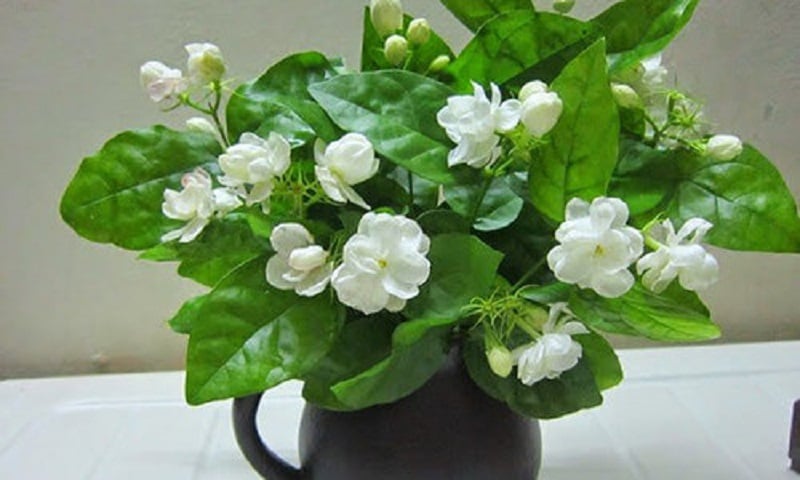
Jasmine, though fragrant and beautiful, is believed to bring adversity and is thus not encouraged for offerings.
Marigold Flowers
Marigolds are beloved for their bright colors and attractive shape, but their strong fragrance is not pleasing to everyone. For this reason, people often avoid displaying marigolds on ancestral altars to ward off bad luck.
Hibiscus Flowers
Hibiscus captivates with its vibrant colors and stunning beauty, but it is known for its short lifespan, often blooming in the morning and withering by evening. Therefore, many people refrain from choosing hibiscus for altars, where longevity and reverence are essential.
Hibiscus Sabdariffa Flowers
Hibiscus sabdariffa, also known as roselle, boasts a wide range of colors and sizes. While some flowers are eye-catching and vibrant, the name of this flower often raises concerns due to the word “dâm” (“sabdariffa” in Vietnamese), which can be associated with promiscuity. Additionally, these flowers wilt quickly in hot and humid conditions, similar to those of an ancestral altar. Hence, during the 15th day of the seventh lunar month or other ceremonies, they are usually not favored for offerings.
Celosia Cristata Flowers (Cockscomb)
Celosia cristata has its benefits in folk medicine, but its name often makes people uncomfortable. With its negative connotations and unpleasant name, it is generally not considered for offerings on ancestral altars, which are believed to be the dwelling place of deities and ancestors. Families may use these flowers for decoration but not for worship.
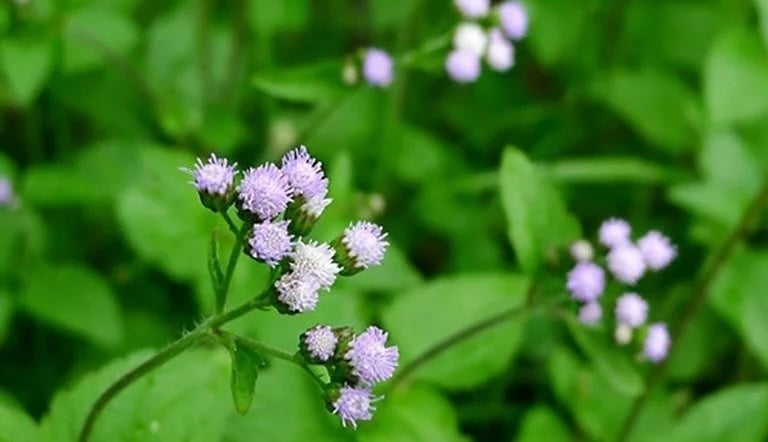
Celosia cristata, despite its benefits, is not chosen for ancestral altars due to its negative name and connotations.
Oncidium Orchids (Dancing Lady Orchids)
Oncidium orchids captivate with their exquisite beauty and alluring fragrance, but their offerings are discouraged on ancestral altars during the 15th day of the seventh lunar month or other ceremonies, mainly due to their unfavorable name.
The ancestral altar is a sacred space that holds deep spiritual significance for every family and lineage. Therefore, the choice of flowers for offerings should be made with careful consideration to avoid any taboos. Homeowners should prioritize flowers with bright colors, pleasant fragrances, and elegant names to show reverence to Buddha, Saints, Deities, and Ancestors.
In addition to selecting beautiful flowers, if possible, homeowners should also consider feng shui elements to choose flowers that bring good luck and prosperity. Flowers such as lilies, peonies, and lotuses are often considered optimal choices as they are not only aesthetically pleasing but also hold positive symbolism. It is essential to research and understand the types of flowers to avoid, protecting the family’s energy field and warding off any potential misfortune.
To change one’s destiny and strive for a life of abundance and happiness, one must worship with sincerity, continuously seek knowledge, work diligently, and perform good deeds in daily life.
Information provided is for reference only.

























